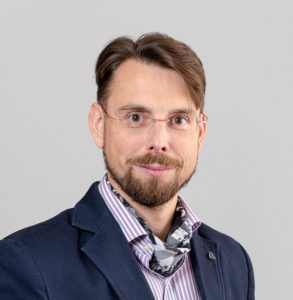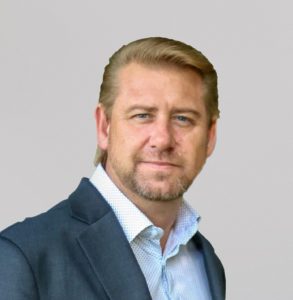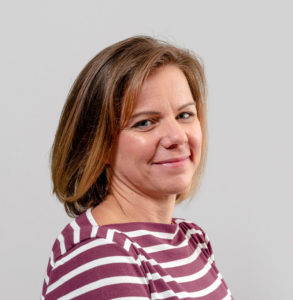A hardening market means clients must be more risk-aware and take control
November 4, 2022

Against the backdrop of a popular Johannesburg golf club, three risk-management professionals talk shop. Ron de Bruijn, Partner at Riskonet BV, Chris Brits, Managing Partner at Riskonet for Africa and Indian Ocean Islands, and Volker Von Widdern, Principal of Strategic Risk at Riskonet Africa discuss how a hardening market is being increasingly felt all over the world, what clients need to do and how Riskonet is helping them to respond.
Ron de Bruijn gets the ball rolling by revealing that for many Riskonet clients in Europe, frustration with the insurance market is currently driving the conversation. Since about 2017, without prior warning, clients have been facing hardening markets, increased prices and an ensuing lack of capacity. This has surprised many big clients, leaving them feeling betrayed, uncomfortable and uncertain. And risk-management associations throughout Europe confirm this.
Substantial investments
When prompted to give his take on how the risk environment has changed, Ron says it all started relatively quickly. One year insurance inspectors were assessing companies’ fire-safety situation as “acceptable” or even “good” and the next year clients were being told by the same inspectors to install sprinklers everywhere. The market hardened in the sense that clients suddenly faced a downward ranking of their facilities, without an actual change in risk. What were recommendations became requirements, and what hadn't even been recommendations suddenly appeared. Clients became stressed at the end of the policy year because they didn’t have the necessary cover. They then struggled with a lack of capacity and were expected to make substantial investments in all kinds of improvements. “But European sprinkler contractors are now in a great position because everybody needs sprinklers!”
Caught out
For his part, Chris Brits says that they have been living in what he calls a soft cycle for the past eight or nine years. “International standards have always been something that Ron has had to deal with, whereas in the local markets local insurers have been quite kind to clients. That said, while clients have had a long time to meet new requirements, they have been caught out by the changing cycle that we are currently in.”
Silver lining
Picking up the thread, Volker von Widdern points out that the ease of obtaining adequate cover made clients complacent. They paid scant attention to the type of cover, or even its applicability and relevance. However, because it’s become so expensive, clients are now more critical. “The benefit is that thinking about your supply chain and your response strategies improves the business’ ability to sustain itself.”
“The benefit is that thinking about your supply chain and your response strategies improves the business’ ability to sustain itself”
Volker Von Widdern, Principal of Strategic Risk Riskonet Africa
Relevance
A business impact analysis, for example, entails a thorough commercial analysis of what’s really involved, continues Volker. If a client suffers a catastrophic fire, pertinent questions have to be asked, but the answers must always be tested for current relevance. It may have taken a year to build a plant 15 years ago, but would that still be possible today? And would they even build it the same way? “The full consequences of a loss like that must be dealt with. And then there are supply-chain dependencies of key equipment suppliers, not to mention microchips.”
Realistic alternatives
For a combination of factors, it’s quite comparable in Europe, agrees Ron. Companies’ awareness is increasing and they factoring in longer delivery times for strategic products. “Our response is to supply clients with more information and give them realistic alternatives. If a production facility is key, it must either be optimally protected or realistic alternatives sought. Like other suppliers, for example, or modifying production in another plant so it can take over if the critical plant fails.”
Cost management
Buts cost remains a major factor, reminds Chris. In fact it’s one of the reasons that most clients fail to comply in the first place. Cost management is a key competency and distinctive capability of Riskonet. “Being able to rely on cost-effective alternatives recommended by an independent source that’s not connected to an insurer, a manufacturer or an installer, is absolutely crucial.”
Opportunities and collaboration
About a third of corporates are willing to reconsider their approach to risk and achieve a different outcome, adds Volker. But the interesting thing about costs is that they also bring opportunities. Before, when insurance was easy to come by, collaboration played a subordinate role. But if the client has to rely on others, collaboration is perhaps not such a bad thing. “Looking at solving a problem differently is an opportunity offered by risk. Good risk analysis provides far more quality information. It can reduce rates and restructure a programme so that insurance can be bought at the right level, which is an enduring benefit for the client.” Riskonet analyses, he stresses, help clients pinpoint the specific areas where insurance should be concentrated, rather than wastefully insuring across the board.
Unique service
Historically, engineering was the basis of analysis, says Chris. “But being able to integrate the financial component that Volker and the strategic teams bring to the table means we can also offer our clients analytical capability on the actuarial side.” Picking up on that point, Volker explains that they have designed a model that blends risk exposures throughout the value chain. Claims are always modelled, he says, but if there is no data it’s left to the underwriter’s judgement. “At Riskonet we are the only ones who provide simulation of potential exposures to the market, giving the same data to reinsurers as they would use themselves. We’re actually reading from the same page as insurers and that’s a unique service.”
Changed market
Moderator Jeremy Maggs seizes the opportunity to steer the conversation towards the future of modelling. “We actively encourage our clients to become more aware of the risks,” says Ron. Too many clients, he says, including big corporates, relied too much on external parties, like the insurance inspector and the legislator. “We provide them with the knowledge, expertise and tools that enable them to think about where the risks lie and what they’re willing to accept.” The belief that they were adequately insured lulled many companies into a sense of false security because costs were relatively low, he continues. But the market has changed. During the past few years the likelihood of being only partly or not-properly insured has taken it from being the sole responsibility of the risk manager to the attention of the company's c-suite.
More awareness
A lack of insurance is an exposure item, cautions Volker, and for a listed company a governance and execution risk at DNO level. He applauds the fact that there is now a lot more awareness and recognition that the market has hardened. Referring back to Chris’ soft market, he thinks people should have paid a lot more attention back then to what was correctly insured or uninsured risk.
Global logistics
Wrapping up the conversation on the practical aspects of risk, Chris reckons that global logistics – the ability to get your supplier to provide you with adequate supplies, on time - is becoming the main obstacle that most international companies are having to deal with. “Issues around the war in Ukraine, delays in the ports and the ability to ship and fly things across have all become big-ticket issues.”
Lingering apprehension
Volker, meanwhile, hopes that enough of the right work is being done in the right places and that companies are sufficiently aware of the risks. He feels there is still a dearth of comprehensive analyses and recognises a lingering apprehension brought on by Covid. “In strategic workshops what we often hear is: ‘we don’t want another Covid-type surprise, so let’s look at our business again’.”
Gaining trust
When asked whether Riskonet had intervened with critical recommendations, Ron explains that even before it started hardening in 2018, they managed to convince clients to take the necessary steps to pre-empt market developments. One of these clients was a mid-size food producer with subsidiaries throughout Europe and beyond. Despite a hardening market and incurring significant losses, the client then had no capacity issues and prices even dropped. Riskonet had helped them gain the trust of the market by demonstrating that they were moving in the right direction and making the right investments.
Better prepared
Chris confirms similar successes in several sectors in South Africa. They have demonstrated to clients that if this new approach to viewing risk is adopted, they’ll be better prepared for the changing market. “The historical position of relying on the insurance broker to identify the inherent risks in your business are long gone,” he assures.
Calls to action
In closing, Jeremy calls for short, sharp calls to action for risk managers in this new risk climate. “Take the steering wheel yourself,” insists Ron. “Insurance is not an annual purchase; it’s a strategic decision,” offers Volker. “Do the detailed analysis; don’t rely on third parties,” concludes Chris.





